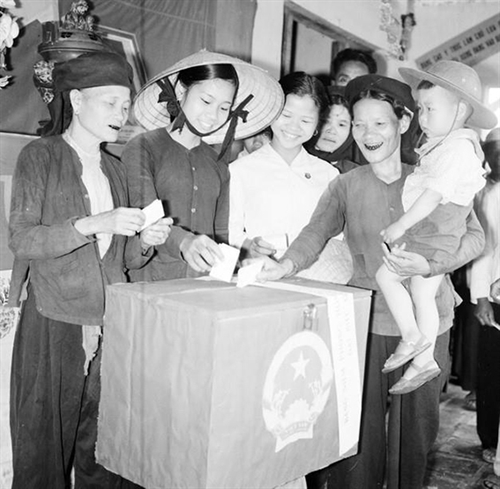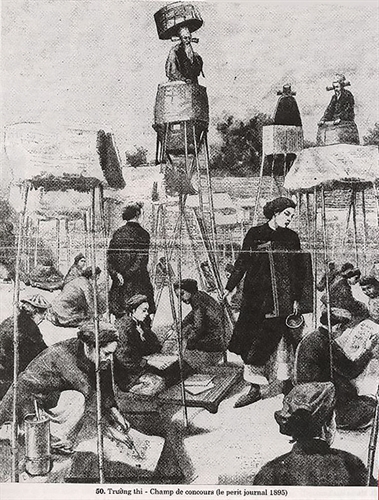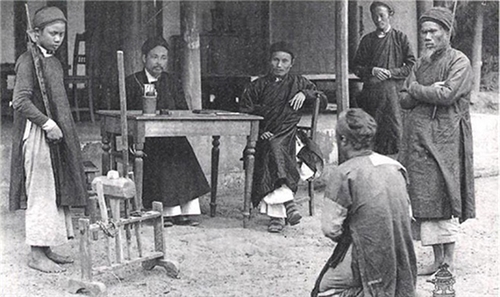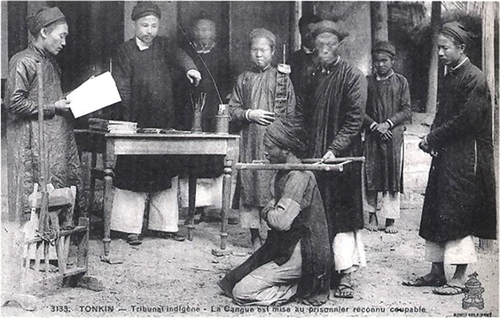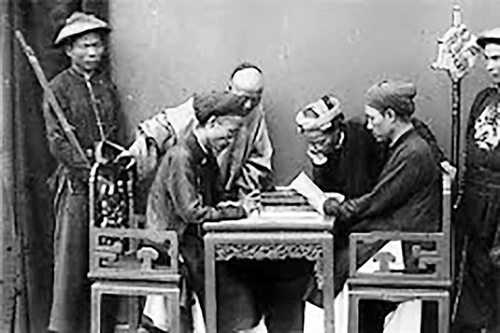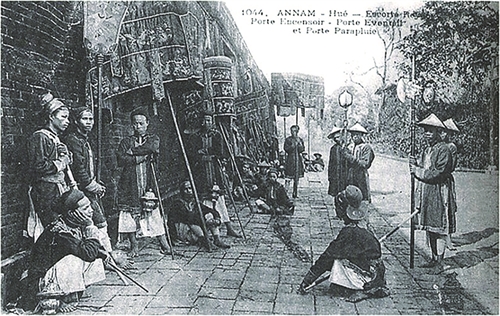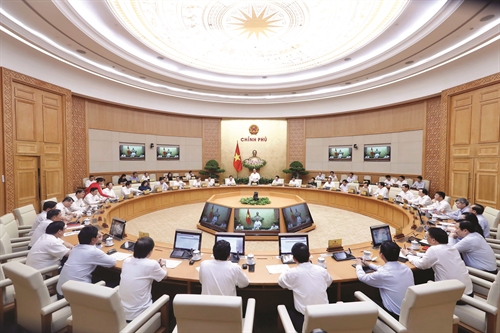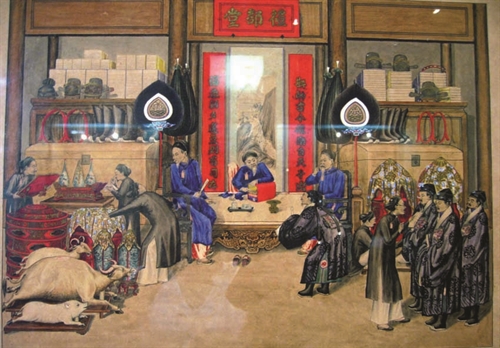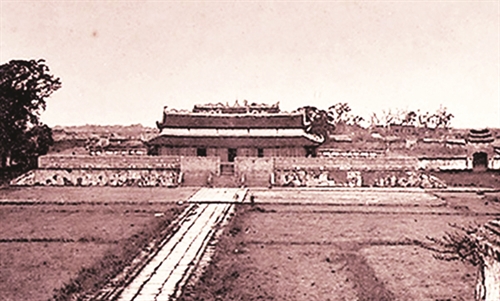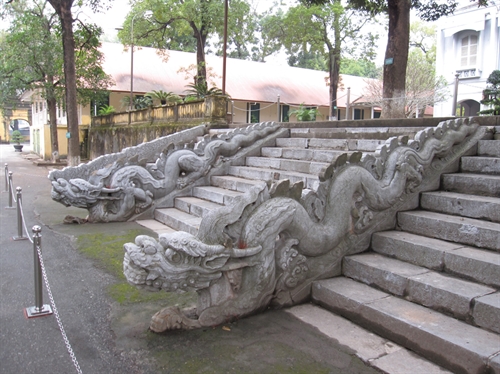Truong Hong Quang, LL.D
Institute of Legal Studies, Ministry of Justice
All nations consider human rights and civil rights as the basic and indispensable institutions of their constitutions. Recognizing, guaranteeing and protecting human rights and civil rights are constitutional missions and objectives in nations around the world as well as in Vietnam.
Human rights, civil rights - basic contents of Vietnam’s constitutions through different periods
Human rights in general and civil rights in particular constitute important parts of socio-economic development objectives and motives[1]. Hence, they are among the most fundamental institutions in every constitution. The emergence of constitutions and laws is prompted by the demand for protection of human rights, and constitutions and laws have so far been considered the most effective tools to protect and promote human rights. It can be realized that constitutions of nations around the world have more widely and specifically recognize these rights[2].
It is due to their role and value, the question of human rights and civil rights in the mankind’s political thinking has become a major feature of the constitutional history[3]. The constitutions of all nations, regardless of their social regime, contain institutions on human rights and civil rights. According to Professor Hoang Van Hao[4], as the institutions on these rights govern the constitutional structure, they usually assume the primary place in the constitutions of many countries.
Vietnam has witnessed five constitutions: the 1946 Constitution, the 1959 Constitution, the 1980 Constitution, the 1992 Constitution (revised in 2001) and the 2013 Constitution[5]. Although with different provisions, they all have devoted one separate chapter to human rights and civil rights. Through the study of such constitutions, some remarks on the human and civil rights institutions can be made as follows[6]:
Firstly, regarding the location of the human rights and civil rights chapter, the provisions on human rights and civil rights have been arranged in Chapter II of the 1946 Constitution as well as the current 2013 Constitution, immediately following the Chapter on Political Regime. This shows that the current Constitution has rightly determined the position and importance of the institutions on human rights and civil rights. Meanwhile, other related aspects (such as the democratic regime, organization of the state power…) have been expressed at different degrees in these constitutions.
Secondly, the constitutions have not only demonstrated the constitutional thinking through the country’s different periods but also been associated with its historical ups and downs. However, the concept on human rights has been always upheld, supplemented and developed. The recognition and guarantee of constitutional rights by the State have stemmed from and purported to perform practical tasks in each revolutionary period. The basic rights and obligations of Vietnamese citizens have developed from one constitution to another. From the first of 1946 to the 2013 Constitution, President Ho Chi Minh’s thought on the administration of the people and for the people has been expressed through their contents. All those five constitutions have laid down the principle that all state powers belong to the people, defining the nature of the Vietnamese state as the state of the people, by the people and for the people, based on the alliance between the working class and the peasantry as well as the intelligentsia.
 |
| Free-of-charge health checkups for children at Bach Mai preschool in Hanoi__Photo: Duong Ngoc/VNA |
Thirdly, Vietnam’s constitutions have also showed that civil rights are closely associated with human rights, with the establishment of the national sovereignty as the starting point for the Vietnamese people to become masters of their country. It can be affirmed that human rights and civil rights in Vietnam have emerged and developed in close association with the emergence of the Democratic Republic of Vietnam and the 1946 Constitution.
Fourthly, human rights and civil rights have been expressed in Vietnam’s constitutions in a fairly broad and advanced manner as clearly seen in the 1946 Constitution where the freedom, equality and democracy rights were recognized together with mechanisms to guarantee their exercise. Developments in the recognition of human rights and civil rights in these constitutions are demonstrated in both the political-legal aspect and constitutional techniques[7].
Fifthly, it can be said that in Vietnam’s constitutional history, the spirit of respecting human rights was culminated in the 1946 Constitution, where human rights and civil rights were given more particular prominence than the subsequent constitutions. The institution on obligations and rights of citizens was established in a more open and progressive approach to mankind’s common ideology but with scientific, strict and highly practical nature. From the substantive approach to the language used in the constitutional establishment of civil rights in the 1946 Constitution, they all reveal the harmonious combination between the progressive value of the western civilization and the peculiar ideologies, conditions and circumstances of the nation in that period, which is the value and peculiarity of this constitution in Vietnam’s constitutional history. The techniques and contents of the 1946 Constitution’s provisions on rights remain to be an important reference for the revision and enforcement of constitutional rights in Vietnam, as clearly seen in the 2013 Constitution.
Sixthly, among the five constitutions, the 1946 Constitution and the 2013 Constitution have approached “a law on rights”. This is manifest through the constitutional provisions recognizing human rights and civil rights as inherent to humans, which must be recognized, respected, protected and guaranteed by the State. Meanwhile, the other constitutions, albeit containing provisions on fundamental rights, have not provided these rights as such, but just the rights established by the State and exercised under the State’s guidelines (Articles 24, 35 and 36 of the 1959 Constitution; Articles 54, 58, 59, 60 thru 67, 72, 74 and 75 of the 1980 Constitution; Articles 55, 56, 58, 59, 61, 63 and 64 of the 1992 Constitution (revised in 2001).
Seventhly, as a law on rights, in addition to provisions on basic rights, other provisions of Vietnam’s constitutions are of great significance to the protection of human rights. As a result, generally, human rights and civil rights have, by nature, not been expressed only in one constitutional chapter. The constitutions have defined the democratic regime and the assignment, coordination and control among state bodies in the exercise of the legislative, executive and judicial powers. These two contents have laid a prerequisite foundation for the protection and guarantee of human rights.
However, some issues related to the human rights and civil rights institution of the current Constitution of 2013 should be further studied and developed. For instance:
* Although all state powers belong to the people, until now the people actually have no right to reconsider the constitution, hence no constitution-making right, which was the right recognized only by the 1946 Constitution.
* There still exists confusion between human rights and civil rights (Articles 22, 23, 25 and 42).
* Clause Article 14.2 seems to be a progressive point but so far there have been no official interpretation of the scope of to be-restricted rights and reasons for restriction of such rights (defense, national security, social order and safety, social ethics, health of community). Besides, the 2013 Constitution fails to mention the suspension of the exercise of rights (in cases of emergency, state of war).
- The 2013 Constitution has laid down the principle of democracy, division of power, declaration of basic rights, but not yet a constitutional defense. Article 119.2 only provides: “The mechanism to defend the Constitution shall be prescribed by a law”, which has not been institutionalized yet. For the basic rights enshrined in the Constitution to be fully respected, a constitutional defense should be established.
Recommendations on further implementation of constitutional liability on human rights, civil rights
Human rights obviously constitute one of the truly progressive and breakthrough institutions of the 2013 Constitution as compared to the previous ones. However, these provisions, especially those on restriction of rights, are prone to infringement[8]. One of the contents of constitutional liabilities is to fully institutionalize and enforce the rights enshrined in the Constitution.
A number of basic rights have not yet been concretized by legal documents or are just regulated by low-effect legal documents.[9] Vietnam’s constitution has acknowledged the basic rights and freedom in the country, which should be concretized in different legal documents. This is an extremely important ground for the enforcement of the principle on rights restriction. A number of rights such as the right to demonstration, association, meeting, freedom of speech,… have not been specifically provided by any law. To date, these rights have been dealt with mainly by sub-law documents such as decrees and circulars (for example, Decree 45/2010/ND-CP dated April 21, 2010, providing the organization, operation and management of associations) with different degrees and scopes of content. Meanwhile, certain rights have only been expressed via legal documents on state management (for example, Decree 38/2005/ND-CP dated March 18, 2005, providing a number of measures to ensure public order, which was essentially related to the right to demonstration). The principle on rights and a specific right has been constitutionally institutionalized but not yet enforced in reality due to a lack of grounds (for example, the principle on restriction of human rights, civil rights under Article 14.2 of the 2013 Constitution)[10]. Some laws contain many state-management provisions on rights-exercising conditions, procedures and process. For example, upon requesting provision of information, requesters are required by the 2016 Law on Access to Information to provide reasons and purposes (Article 24.2.d). Such provision is heavily state management-driven and not really for full approach in respect of a human right or civil right.
In order to further realize the constitutional liability, thereby institutionalizing fully and more profoundly the constitutional contents on human rights and civil rights in Vietnam, it is necessary:
Firstly, to fully perceive and implement the constitutional liability as an independent legal liability so as to further scrutinize and step up the drafting and passage of laws on the rights already established in the 2013 Constitution.
Secondly, the National Assembly Standing Committee should explain a number of provisions on rights in the 2013 Constitution in order to provide a foundation for practical enforcement. For instance, it is necessary to adopt a resolution explaining the provisions on rights restriction (including Article 14.2 and Article 15.4 of the 2013 Constitution). Major issues to be addressed by such resolution include[11]: (1) Type of documents which can define the issue of rights restriction and legislative authorization; (2) The question of “necessity” and six reasons/purposes to be used for rights restriction; (3) Group of to be-restricted rights; (4) The question of temporary suspension of rights; and (5) Methods of examining the constitutionality of provisions on rights restriction.
Thirdly, to shift from the management-driven thinking to the development-conducive one in the law making and enforcement process. If the making and enforcement of laws on rights are merely to meet management requirements, the purposes of such laws cannot be achieved. According to the Human Rights-Based Approach, law making and enforcement efforts should be based on the following basic principles: (1) The assistance to exercise and enjoy human rights is considered as a basic objective in the law making and enforcement process; (2) The international principles and standards on human rights are taken as the orientation in the law making and enforcement process; (3) To clarify subjects of rights and subjects of obligations as well as their rights and obligations in the law making and enforcement process. If legal document drafters, appraisers and examiners fully approach the rights-based methods, the rights will be guaranteed better than the rights protection requirements[12].
Fourthly, to further improve the 2013 Constitution through revising provisions on human rights and civil rights (matters on constitutional rights, constitutional jurisdiction, independent justice, etc.).
Conclusions
The study of institutions on human rights and civil rights through different constitutions as well as a number of questions put forward for the law(s) on these rights at present results in valuable lessons. Historical experiences show that democracy building and the guarantee of human rights and civil rights under the conditions of a backward economy, low cultural standards and heavy consequences of fierce wars proved to be extremely difficult and complicated tasks[13]. Only by clearly realizing this can we treasure the human rights values gained by our people and have a firm base for further heightening values of human rights in new development steps toward achieving the goal of a prosperous people, a strong country and an equitable, democratic and civilized society.
Human rights can be truly respected, guaranteed and fully exercised under the conditions when awareness about rights and obligations reaches a high sense of self-consciousness, which is translated into concrete practical action. Profound perception of the respect, guarantee and exercise of human rights is an important and inevitable requirement of officials representing the people to enforce the public powers[14]. The socialist law-ruled state of the people, by the people and for the people will not be fully established without broad exercise of rights and democratic freedoms by every citizen. The constitutional principles on organization and operation of the state, and human rights and civil rights can be valuable and sustainable if they stem from the view of people as supreme masters of all powers and the subjects of basic rights and freedoms of humans.-
